Assassin’s Creed Valhalla Review

Official Score
Overall - 95%
95%
Assassin's Creed Valhalla is the best tale the franchise has ever told, featuring the most varied and rewarding gameplay the series has seen in years. Valhalla will forever dine in Odin's Hall as one of the greatest RPGs of this generation.
Assassin’s Creed Valhalla, the 12th instalment in the critically acclaimed Assassin’s Creed franchise from Ubisoft, brings the fight to England as the Norse, Danes, and Anglo-Saxons fight for dominance amidst the rolling English countryside. Succeeding the likes of the critically acclaimed Assassin’s Creed Origins and Assassin’s Creed Odyssey, both boasting huge and magnificent game worlds, is no simple feat, even for a series with the pedigree of Assassin’s Creed.
With franchise fatigue a very worrying concern for some and the end of the generation ever looming, does Assassin’s Creed Valhalla meet the high standards put in place by its predecessors?
Assassin’s Creed Valhalla Review
[line style=’solid’ top=’10’ bottom=’10’ width=’100%’ height=’1′ color=’blue’]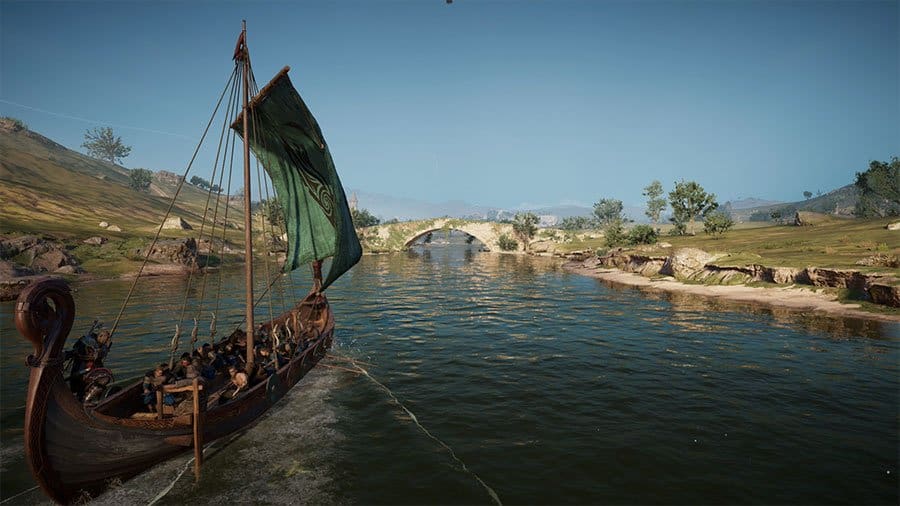
Growing up in merry old England, I wasn’t confident that Assassin’s Creed could bring the same level of splendor and magnificence seen in previous games. The towering pyramids of Egypt, the decadent architecture of Athens, and what does England have? A few castles, some standing stones, and a bloody long wall. While Egypt and Athens may steal the majority of headlines when it comes to the wonders of the ancient worlds, England’s warring factions in constant conflict as the Danes clash with the Anglo-Saxons, the Picts attack from the North, and the Norse arrive for good measure, sets a very interesting premise.
But is it enough?
The story begins as young Eivor (available as both a male and female playable character) and his family are celebrating a bond of friendship and love as the Raven Clan hold celebrations for the great King Styrbjorn, hoping to bring peace and prosperity to the region. A huge feast, barrels of mead, proud Viking songs – the first few moments set a fantastic tone, before it all comes crumbling down as a twisted betrayal and a broken word lead to the death of Eivor’s parents and the slaughtering of the Raven Clan.
That’s about as much detail as I’m going to offer for the story. There’s no need for the finer details; it’s an incredible journey, arguably Ubisoft’s greatest creative narrative works to date. Assassin’s Creed Valhalla continues the series’ complex but rewarding over-arching narrative with a combination of storylines that bring together the stories and adventures of the past, with a very real and threatening scenario from the future. The Animus storyline continues to play a vital role, but it takes a welcomed back seat to Eivor’s adventures alongside his brother Sigurd.
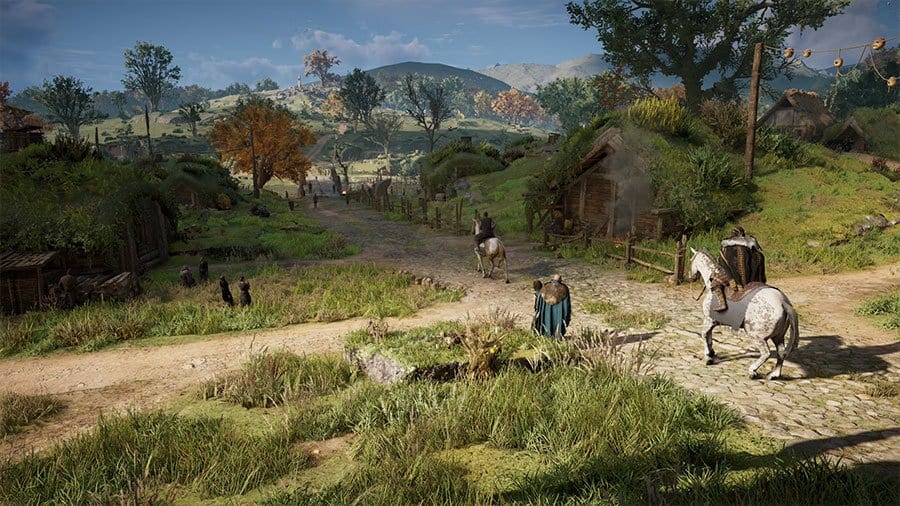
Valhalla’s stories are intricate in design; interwoven tales like the tapestries of the Norns, slowly threading into the main narrative as the game progresses. Each of the regions of England you explore comes with its own troubles and turmoils. One moment a King is struggling to quell a bandit uprising, the next a Jarl is questioning the loyalty of their closest subjects. Each region is filled with interesting characters, charming events, and engaging activities. Eivor eagerly attends each location, hoping to create allies for the Raven Clan, making friends and enemies along the way.
The combination of incredible world building, Norse mythology, and the myths and legends of ye olde England brings together a flourishing world full of character that is truly a wonder to explore.
Despite my love of the more recent Assassin’s Creed games, I definitely found myself struggling towards the end of Odyssey, growing tired of the repetitive aspects between the previous games. I would be lying if I said Assassin’s Creed Valhalla doesn’t have that potential for some players but a slight shift in direction for some of the games more traditional elements really brings a refreshing take to the whole thing.
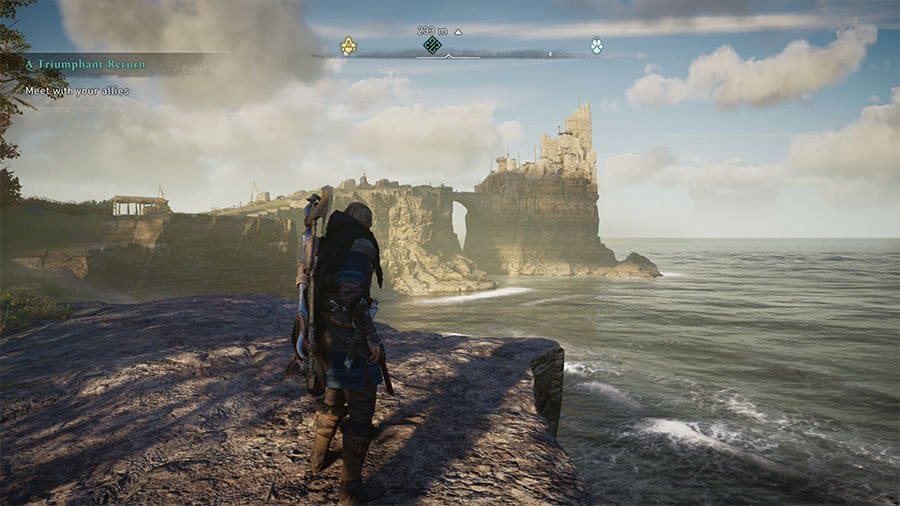
The greatest game world, a wonderful narrative, gorgeous graphics – none of it really matters if the gameplay isn’t up to par. Assassin’s Creed has long lived and died by the quality of its combat, and Valhalla’s is probably the greatest the franchise has seen to date.
The backbone of the combat experience is a stamina meter, one designed to compliment combat gameplay instead of hindering it. Using your basic light attacks fills your stamina, while missing attacks and dodging depletes it. This encourages an aggressive playstyle fit for Norse Vikings that rewards accuracy and skill over randomly launching your most powerful attacks and hoping something hits. At the same time, it’s entirely compatible with a more defensive playstyle that utilizes the dodging and fantastic parry system, all of which is complimented by an arsenal of abilities and a monstrous skill tree.
Assassin’s Creed Valhalla’s combat offers a playground of versatile and robust options that truly puts the power of play into the hands of the player. Specializing in ranged attacks and abilities is both possible and viable, and the same can be said for stealth and aggressive melee play. Whatever your style, there’s a set of armor, a weapon, a series of skills, and a long list of abilities that ensure you’ll have a blast. From start the finish, the combat is engaging, rewarding, and completely brutal.
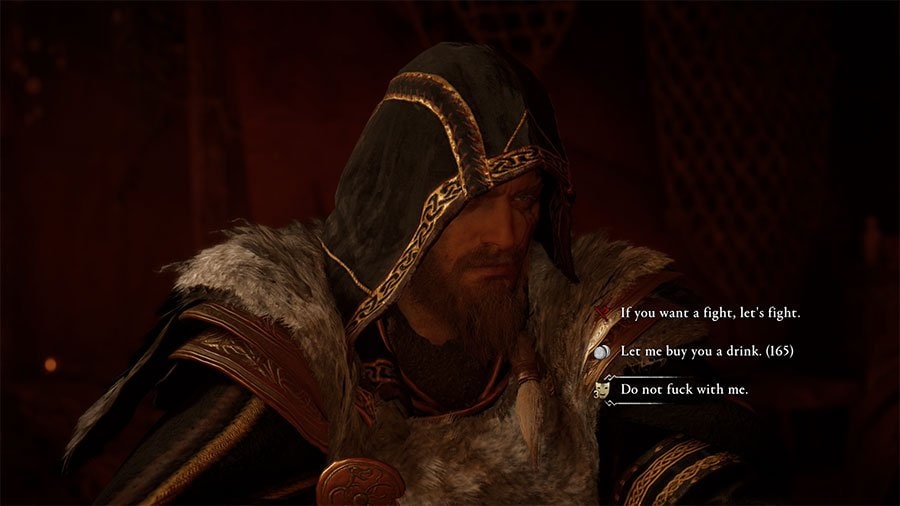
The world building in the Assassin’s Creed games, especially those in recent years, has been incredible. From the peaks of the pyramids to the depths of the gorgon lair, both Origins and Odyssey brought to life their respective eras masterfully, and Valhalla does much of the same. Riding on horseback at the ridge of the White Cliffs of Dover, lighting the braziers that don the great Hadrian’s Wall, raiding seaside, cliff-top castles with droves of allies at your back – it’s all there. England may lack the constructed marvel of Egypt and Greece, but what it lacks there, it more than compensates with its natural beauty.
As in tradition with Ubisoft games of late, there’s an absolutely massive game world, split across England and Norway (with some secrets I’ll keep to myself). Whether you’re sailing down the Thames with an angry warband of Norse ready to raid and plunder unsuspecting monasteries or enjoying the rolling hills of Hamtunscire, you’ll find plenty of events, activities, treasures, and rewards in your path.
Raiding alongside your Raven Clan is arguably one of the games most enjoyable and rewarding activities. It’s simplistic in design, but enjoyable and fun in its execution. Certain strongholds along the river can be attacked, and using a custom clan of characters, you can recruit from friends and the world itself. Launching a strike, you can sneak in ahead, culling the enemies numbers, or launch a full-scale frontal attack with the full force of the clan. You take what you can carry and cut down anything in your way; it serves as a refreshing step away from constantly chasing objectives and quests.
The resources gained during these raids can then be used to upgrade Ravensthorpe. What begins as a simple grouping of tents and troops as the Norse make land in England evolves and grows throughout the game. Players will construct new buildings and find new recruits, unlocking customization options, gameplay mechanics, and cosmetic upgrades along the way. Each upgrade feels worthwhile, and once the settlement is complete, it’s a sight to behold.
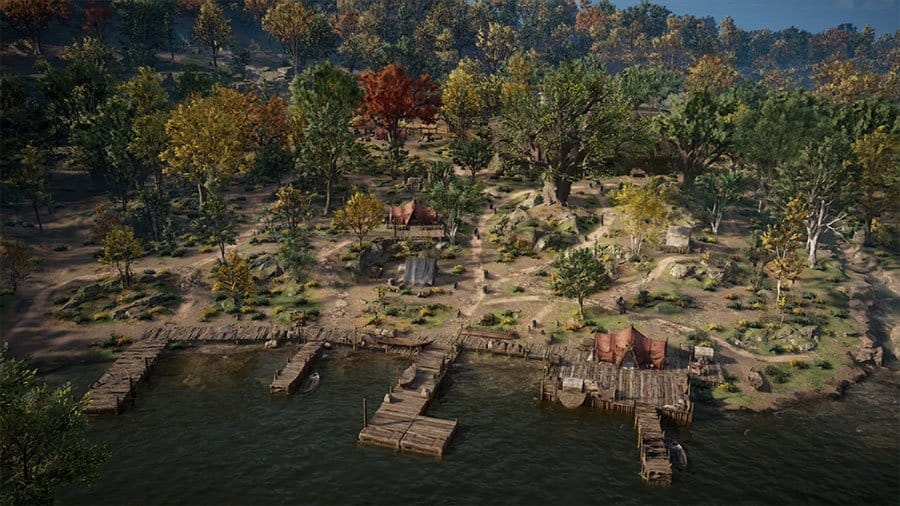
Unfortunately, Ubisoft does continue the trend of putting nearly everything on your compass or map, which does detract from the excitement of pure, open exploration. Despite this, with the amount going on, it’s a design choice I can understand. One area that has been greatly improved is its side quests. Thrown together into “Mysteries,” they serve as a combination of side quest-like encounters and other exciting objects to discover. Unlike previous games, the side quests are much more manageable, often solved in the immediate area. It creates a living, breathing game world full of hidden stories and rewarding journeys, without the insane amount of back and forth traveling from previous games. Whether one is grabbing civilians from a burning building, rescuing merchants from a bandit ambush, or stealing the clothes from a nudist colony, there’s a lot to see and do.
Assassin’s Creed Valhalla improves on its predecessors in so many ways, but at the same time suffers many of the same flaws. Games of this magnitude rarely function perfectly, and that problem is persistent throughout the game. I’ve crashed multiple times, experienced issues with frozen NPCs, and swore at the lack of accuracy with the contextual interactions more times than I can count. None of these problems are overly jarring on their own, but like the tapping of a pen on a desk, it eventually gets bloody irritating.
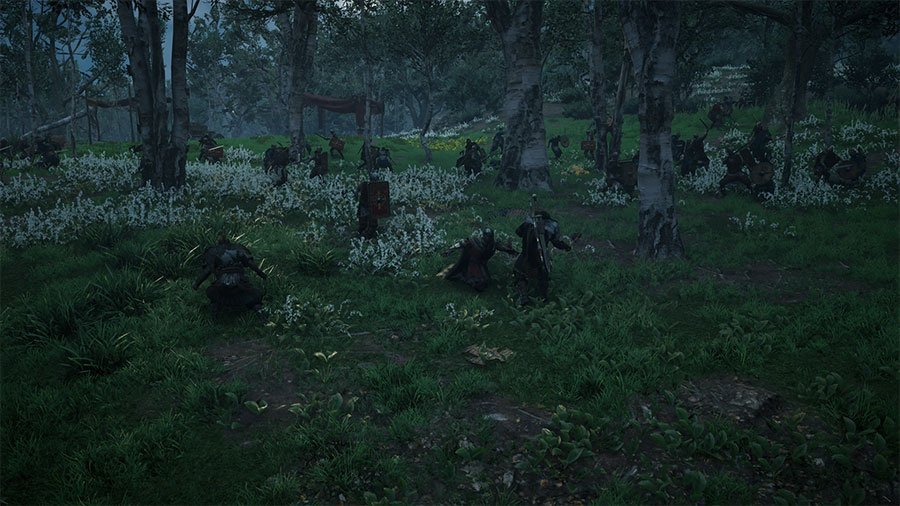
At the time of writing, I’ve put approximately 80 hours into Assassin’s Creed Valhalla. I’ve completed the main story, unified the shires of England, and explored a lot of the side content. I’ve yet to finish the fishing side activities, the hunting of legendary creatures, the claiming of the Lost Treasures of Britain, or the slaughtering of the order. I’m also still hoping to master Orlog, a strategic dice game that’s surprisingly a lot of fun. If you’re a fan of the Assassin’s Creed franchise, you can easily spend 100 hours exploring everything the game has to offer.
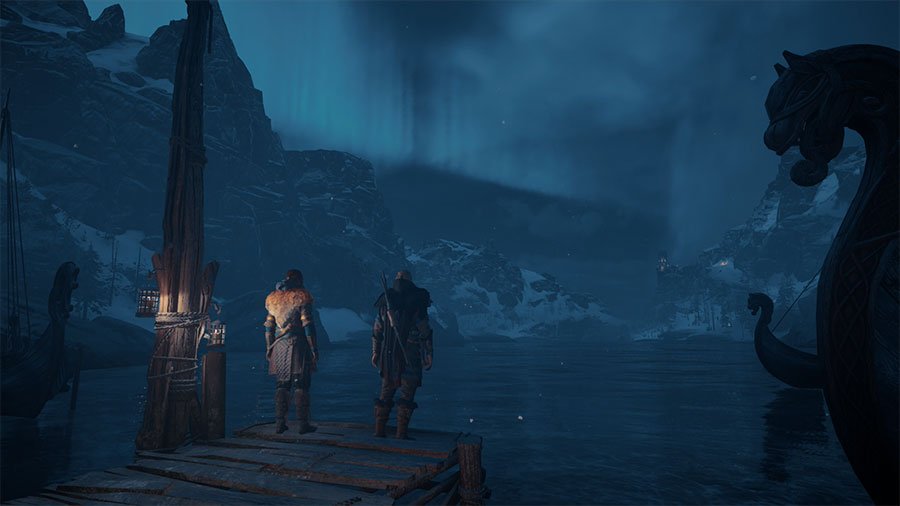
Assassin’s Creed Valhalla is the best tale the franchise has ever told, featuring the most varied and rewarding gameplay the series has seen in years. Valhalla will forever dine in Odin’s Hall as one of the greatest RPGs of this generation.
[infobox style=’success’ static=’1′]This Assassin’s Creed Valhalla review was done on the PlayStation 4 Pro. A digital copy was provided by the publisher.[/infobox][blogger ids=” cat=’honest-game-reviews’ orderby=’date’ order=’desc’ count=’4′ descr=’200′ readmore=’1′ rating=’1′ style=’image_large’ border=’0′ dir=’vertical’]